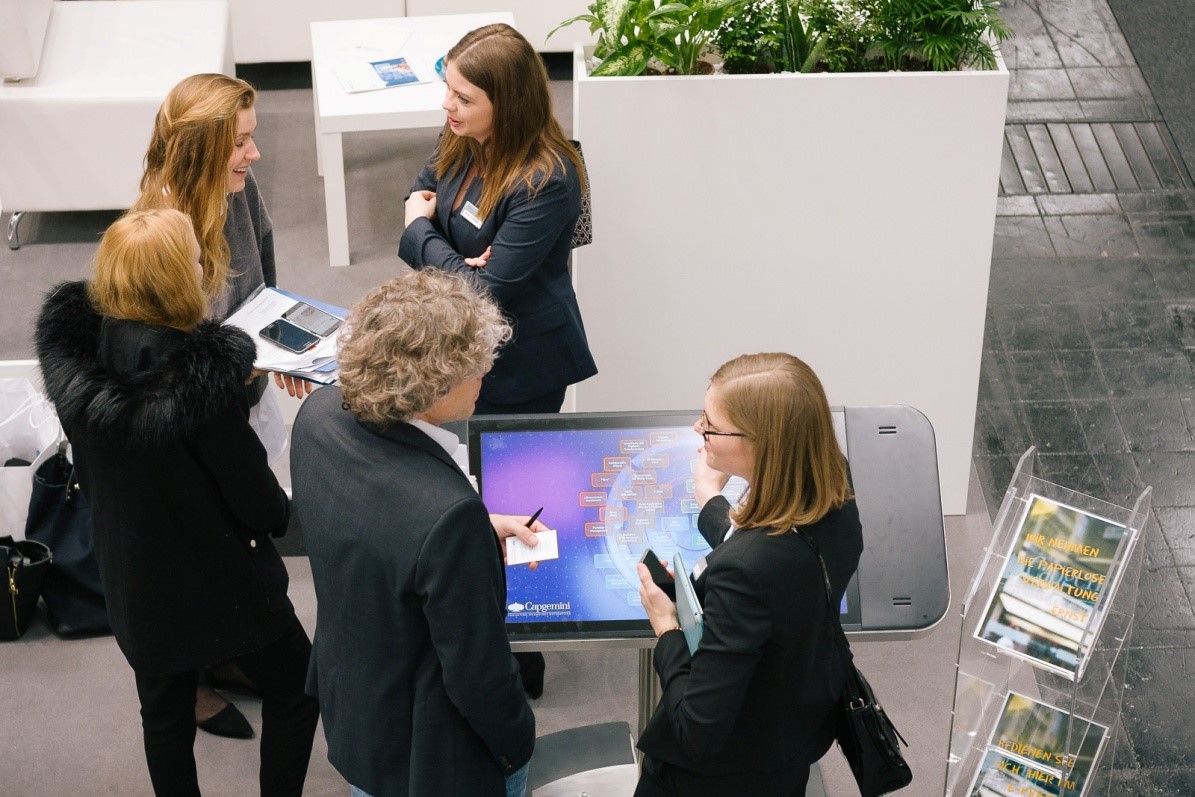Open Data as foundation for Society 5.0
Reflections from CeBIT 2017
Though discussed for many years in the light of the lively smart and conscious cities debate, at CeBIT 2017 Open Data evolved as one of the major topics. Smart Cities and Society 5.0 integrate physical and digital systems dealing with large amounts of data. Various sectorial services involved in Society 5.0 require a systematical approach on Open Data. New processors and software process data masses in neural nets, like the human brain. Intelligent algorithms recognise pattern in unstructured records - saving human life or unveiling fraud. At CeBIT hundreds of exhibitors displayed innovative solutions of the widest range such as connected health or predictive marketing. All these initiatives and solutions still remain separated.
Obviously, the fair showed two different sorts of cases: first, one set of data separated and used by itself. In these cases indirect value is created i.e. comparing water levels when building a house. Potential owners of a property might decide according to the distance to rivers or oxbow rivers, if and how they can build a house there and eventually decide which kind of insurance they choose. Grand challenges can be met and potentially solved in our cities by using Open Data solutions. Mobility, safety, and demographical change same as participation create new amounts of data - day by day. The urban Internet of Things needs to be transferred into hands-on concepts and approaches to urban planning.

Photograph: Evelin Horn
Second, multiple sets of data in combination become growingly interesting. For example the CityScienceLab in Hamburg organised the "Finding places" initiative, a discursive project to identify 20,000 housing places for refugees during the European refugee crisis. Infrastructural data (schools, traffic, etc.) was matched with the known physical condition of places in regard to their potential as temporary housing zones. Accessible existing data of urban statistics combined with the knowledge of the local population generated a unique set of data, which showed how this Open Data project generated new value in a collaborative way. The CityScope-MIT method was a success in identifying potential housing zones in a joint effort of citizens and administration under a common will and political agenda. Interactive urban models visualised both suitable areas and their surrounding conditions. Nearly 400 citizens of Hamburg participated within two months and named 161 areas with the desired housing potential. Those were clustered by three criteria when shortly available, arable and usable. The city government decided to give feedback on each nominated location within 14 days. Public officials identified 44 out of 161 places that were suitable to fulfil the initial criteria without restriction. In these spots temporarily houses could be possibly built, a short list of 9 locations was granted a recommendation of realisation. The result of this project unfolds permanent benefits to refugees. They could move from precarious accommodations to more comfortable and family friendly housing.
The above mentioned use cases are outstanding examples how administration and citizens can commonly generate value from collecting and analysing data. Digitisation and Open Data empower citizens and communities - and help to make cities worth living.
The European Data Portal proves the overall trend: data generated in the context of cities, urban spaces or regions are the highest frequented sets of data among all categories. To public institutions it is a revolutionary new role to unleash the potential of data by coordinating, managing and providing it to the public.
In Germany Open Data used to be a grass-root approach and nerdy topic in the past. Government as provider of data and society as consumer and producer collaborate to discuss and participate in local planning (city planning). Both is mutual - provider and consumer of data merge and become "prosumer" - a phenomenon of smart and intelligent Society 5.0.
